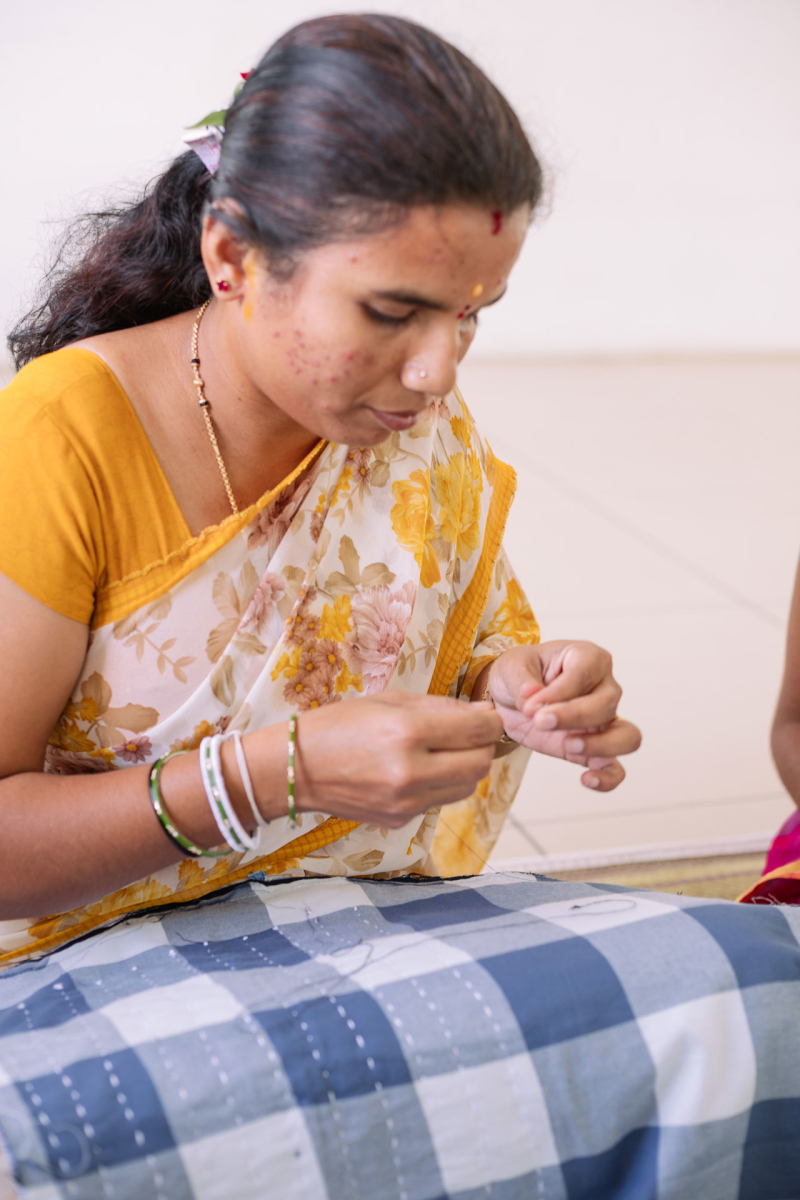FOCUS AREA
UNLOCKING WOMEN'S LABOR
LOCATION
Rural Karnataka
REACH
4 villages, 1200 women
PARTNERS
Shahi Exports, University of Michigan, Bhaane
STAGE
- DESIGN
- EVALUATE
- ANALYZE
- DISSEMINATE
- SCALE-UP
Adapting The Supply Chain For Rural Women
CHALLENGES AND OPPORTUNITIES
Women in rural India typically labor in the agricultural sector, and in informal settings. Their labor force participation rate continues to lag behind that of rural men by almost 40%. Compounding this problem are gendered issues such as mobility restrictions, societal norms, felt lack of protections in the informal context, and household responsibilities. We carried out interventions to assess the impact of providing home-based work opportunities for rural women. Our aim is to rigorously evaluate the effectiveness of home-based work and provide a framework for its potential implementation at a larger scale. One of the main goals of this study is to integrate rural women into India’s formal labor force, and to bring their products to national and international markets. The findings from our project will allow us to design a novel supply chain characterized by fair wages, women empowerment and worker wellbeing and a supply chain that is adaptable and sustainable enough to improve the livelihoods of low-income women across rural India.
RESEARCH QUESTION
Can we increase the labor force participation of rural women if we offer flexible work from home opportunities? Can home-based work contribute to a sense of empowerment, and a wider shift in the narrative of women’s work in rural communities?
RESEARCH DESIGN
We conducted studies in two villages, one during 2019 in the southern Indian state of Karnataka and the second in 2023, in the northern state of Jharkhand. The intervention is being carried out as a small scale randomized control trial spanning three weeks. 50 women are hired for 15 days to make artisanal items. Every 5 days, they are assigned either to work from home or from the village workshop and their items are assigned a price. Through this intervention, we are comparing the women’s participation in home-based paid work with equivalent work inside a workshop to understand which form of work facilitates higher productivity, and increased levels of participation from the women. We are also estimating the effects of fair wages on women’s consistent labor supply, and the community’s attitudes towards their inclusion in paid work.
MEASURING OUTCOMES
- Production and productivity rates
- Women’s participation in the workshop vs their own homes
- The price threshold at which women take up more paid work
- Shifts in their community’s acceptance of professionally engaged women
Image credits: Mansi Kabra / Nayantara Parikh
Watch our video to know how flexible work opportunities for women can serve as a gateway to formal employment :


